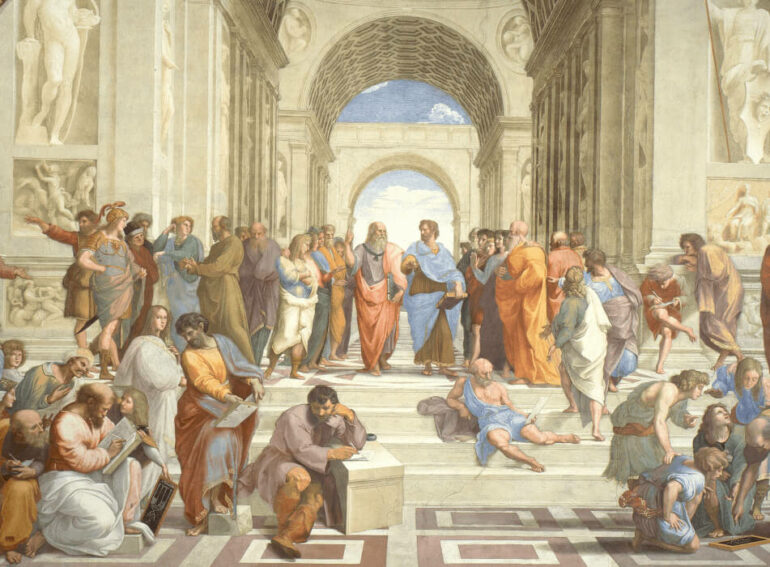Technology produces wonderful new tools. But what is lost in their wake?
It’s a question society is always facing – even if it’s not always conscious of it. For my people over 35: how many of your kids will ever write more than a few sentences in cursive? Will they even learn to write in cursive?
No. Today’s generation grows up with iPhones, iPads, TikTok, Roblox, and an internet that looks nothing like version 1.0, when you had to surf the web via your telephone landline (I wonder if there’s a ‘Gen Z reacts to GeoCities’ video out there somewhere).
“What we’re dealing with here is something so profound that the changes it’s going to bring are not the kind of thing that the government can alter.”
– Stephen Marche
Listen, I host a technology podcast and I run a business news publication covering startups and technology innovation; I have spent my whole life exploring technology. But as I grow older, I find myself more and more grateful that I was born before the modern technology explosion so as to experience and appreciate what proceeded it.
Because things are speeding up. And as we’ve discussed on several podcasts now, generative AI is the first little tease of a new epoch.
I’m sure you’ve fiddled around with ChatGPT by now (we did). Or produced your own ‘the movie 2001 but as played by the Muppets’ images.
Businesses are playing around with this new tech, too. CNET has recently started using it to produce news articles (the Associated Press has been using AI tools since 2014). And we know Microsoft is chomping at the bit to integrate Open AI tech into everything from Bing to Clippy.
Generative AI could be a wonderful tool. What will be lost in its wake?
On the podcast this week is Stephen Marche, Canadian novelist, essayist, and cultural commentator. He’s been doing some interesting work with Canadian startup Cohere, which he discusses on this podcast, but it’s his writing that prompted me to ask him on the show.
Marche has been all over the place writing thoughtful pieces on AI in the Globe and Mail (about how bill C-27 fails to understand AI and thus how to regulate it) and in the Atlantic (about how nobody is prepared for how AI is going to transform academia). Why? Well, for probably a lot of reasons, but certainly because the college essay is dead.
Now, I know, you have two technology writers on this podcast talking about writing and academia. Worse still, he’s a Kings guy, I’m a HUMS kid.
But please, trust me, this conversation is extremely important—if only to understand how much STEM and the liberal arts need each other right now, and how both are wholly unprepared to engage.
Because again, this conversation is not new. Socrates was talking about the destructive power of technology more than 2,000 years ago.
If humanity learns to write: “it will implant forgetfulness in their souls; they will cease to exercise memory because they rely on that which is written, calling things to remembrance no longer from within themselves, but by means of external marks. What you have discovered is a recipe not for memory, but for reminder.”
Here’s the kicker: the only reason we know that is because Plato wrote it down.
Shit’s complicated. Let’s dig in.
From Ada Support to Neo Financial, Canada’s top startups build on AWS.
But they didn’t do it alone. So whether you’re looking for help solving a technical challenge, hiring the right engineers, or finalizing a fundraising round, we have all the resources you need to get started. There’s a reason more startups build on AWS than any other provider: we’re here to help you succeed, from inception to IPO.
To learn more, or to start your cloud journey, go to www.aws.amazon.com/startups.
Subscribe via: RSS, Apple Podcasts, Spotify, Stitcher, Google Podcasts, YouTube
The BetaKit Podcast is hosted by Douglas Soltys & Rob Kenedi. Edited by Kattie Laur. Sponsored by AWS. Feature image courtesy Raphael.


